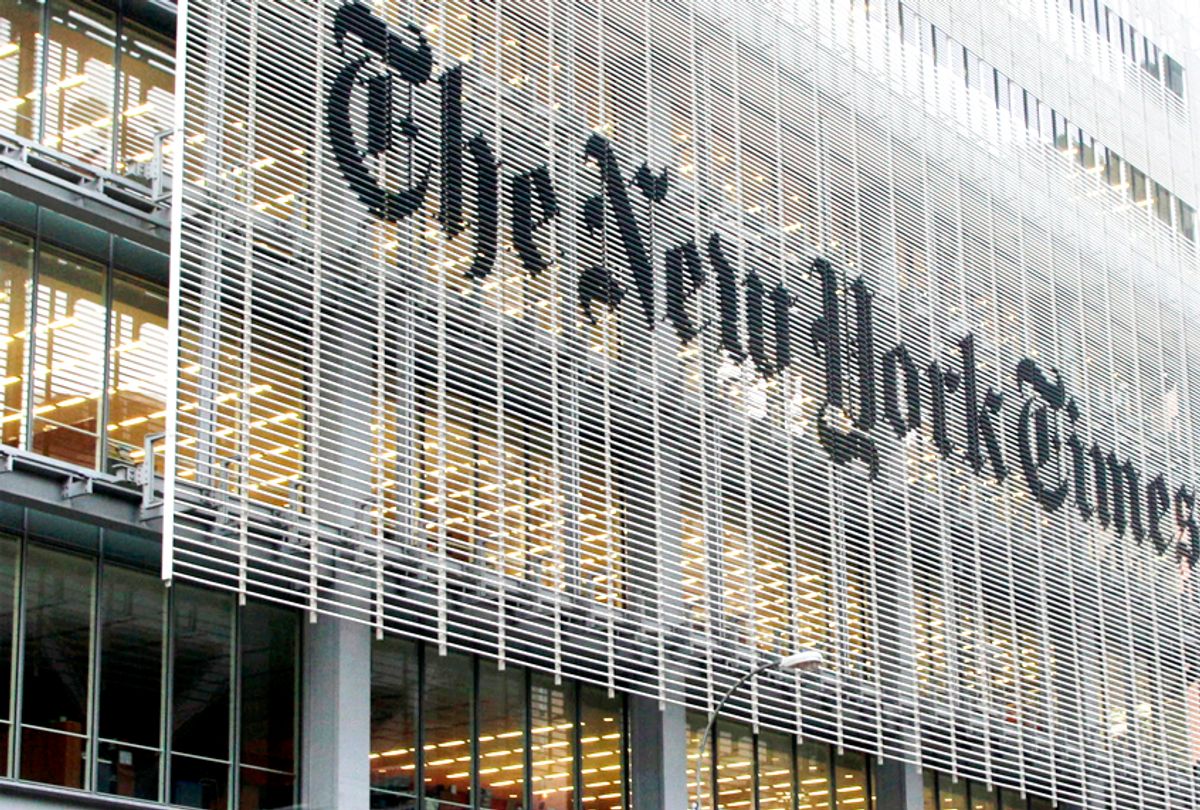When Jonathan Weisman, the deputy Washington editor for the New York Times, posted a tweet in the early hours of Wednesday morning scoffing at the notion that heavily-minority urban areas in the Midwest are part of the Midwest, he unwittingly revealed his own internal political geography — and that of his professional home.
The response — including from highly respected journalistic colleagues — has been thunderous, probing, distressed, and astute.
It comes, of course, in the context of the Times playing an outsized role in the political journalism community’s relationship to Trump. It is arguably the chief target of his attacks against a free press. It has roused itself to undertake outstanding investigations into his fraudulence as a person, a businessman, a candidate and a president. But it has also proven itself too timid and too addicted to access to be as critical and confrontational — in the defense of truth, pluralism, and fair play — as its role demands.
Here’s the tweet in question, which Weisman deleted shortly after 10 a.m. ET:

The text:
Saying @RashidaTlaib (D-Detroit) and @IlhanMN (D-Minneapolis) are from the Midwest is like saying @RepLloydDoggett (D-Austin) is from Texas or @repjohnlewis (D-Atlanta) is from the Deep South. C’mon. https://t.co/C8d8OWHu3j
— (((JonathanWeisman))) (@jonathanweisman) July 31, 2019
It was in response to this tweet from Waleed Shahid, a spokesman for the highly energized progressive political action committee Justice Democrats — whose members include Ilhan Omar of Minnesota, Rashida Tlaib of Michigan, Ayanna Pressley of Massachusetts and Alexandria Ocasio-Cortez of New York.
Chronologically, this all started with celebrated centrist and former (defeated) Missouri senator Claire McCaskill’s assertion in a post-debate panel on MSNBC (where she is a paid analyst) that “Free stuff from the government does not play well in the Midwest.”
That was an encapsulation of the centrist view (some would say a racist dog-whistle) that white voters perceive government spending as going to minorities and it makes them angry.
Shahid’s point was that McCaskill’s view of the Midwest did not seem to include cities like Detroit and Minneapolis.
Weisman’s riposte was, essentially, a doubling down of McCaskill’s position. More than that, even — it was an assertion that urban areas — not just Detroit and Minneapolis, but Atlanta, and Austin — are not a part of America’s geography at all. What’s even more telling is that he obviously thought this was non-controversial — even self-evident.
Weisman’s deletion of the tweet is not best practices for Twitter — particularly for journalists. He explained it thusly:
Almost certainly, one reason was that the tweet was being “ratio’d” by the Twitter community. That means that replies (mostly negative) considerably outweighed retweets or likes (which presume a certain positivity). At last count, before Weisman deleted the tweet (and therefore all the responses) there were 2,600 replies to 122 retweets to 576 likes.
I’ll update this post as the day goes on — particularly if the Times takes some action.
To be clear, they should distance themselves from Weisman. But they can’t, really, because he is their creature.
Now I’m just going to get out of the way, and show you how Twitter responded — including high-profile writers for the New Yorker, Atlantic, Salon, New Republic, the New Republic, the Washington Post, and the New York Times opinion page.
I’m spending this week experimenting with different possible forms of output for a new project I’m pursuing that involves a daily critique of American political journalism. Please share your thoughts in comments, or at froomkin@whitehousewatch.com.



Shares